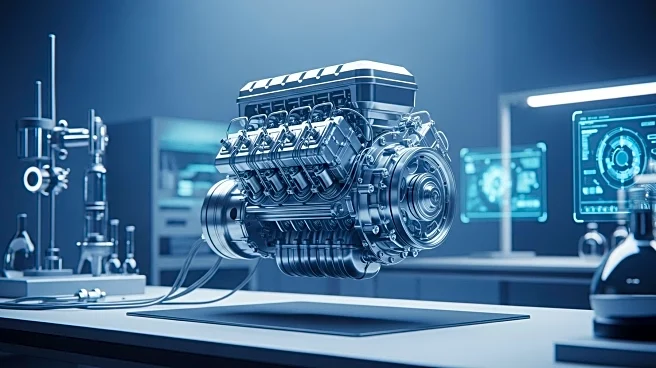What is the story about?
What's Happening?
Researchers at King’s College London have created a microscopic engine that reaches temperatures higher than the sun's core. This engine is not a traditional motor but a single microscopic particle held in place by an electric field, known as a 'Paul Trap.' By applying a specific voltage, the scientists were able to increase the particle's heat to unprecedented levels. The experiment revealed that the particle sometimes cooled down when exposed to more heat, defying conventional physics. This phenomenon is attributed to random fluctuations in the environment that significantly impact microscopic scales. The researchers aim to bridge the gap between macroscopic and microscopic worlds, enhancing understanding of energy dynamics in tiny environments.
Why It's Important?
This breakthrough has the potential to revolutionize the understanding of thermodynamics and energy transfer at microscopic levels. The implications extend to biology, particularly in understanding protein folding, which is crucial for bodily functions and disease prevention. Misfolded proteins can lead to various diseases, and predicting their folding patterns is complex. The experimental setup developed by the King’s College team could simplify these predictions, making them more energy-efficient. This advancement not only challenges existing physics theories but also offers a sustainable approach to biological simulations, potentially leading to new disease treatments.
What's Next?
The research team plans to further explore the applications of this microscopic engine in biological contexts, particularly in protein folding. If successful, this could lead to significant advancements in medical research and treatment development. The experiment's findings may also prompt further studies into the fundamental laws of physics, encouraging scientists to reconsider established theories. As the research progresses, collaborations with biologists and medical researchers could emerge, aiming to translate these findings into practical healthcare solutions.
Beyond the Headlines
The development of this microscopic engine highlights the intersection of physics and biology, offering insights into how microscopic phenomena can influence macroscopic processes. It raises ethical considerations regarding the manipulation of biological systems and the potential for unforeseen consequences. Additionally, the research underscores the importance of interdisciplinary collaboration in scientific advancements, as understanding complex systems often requires expertise from multiple fields.















